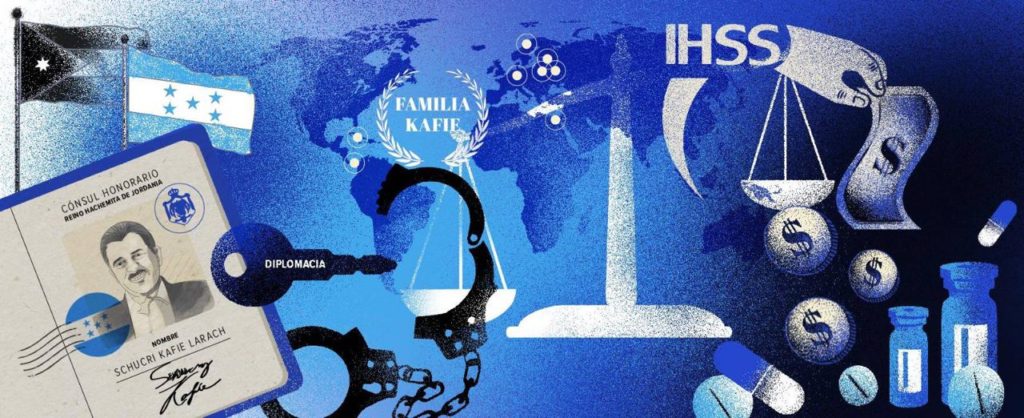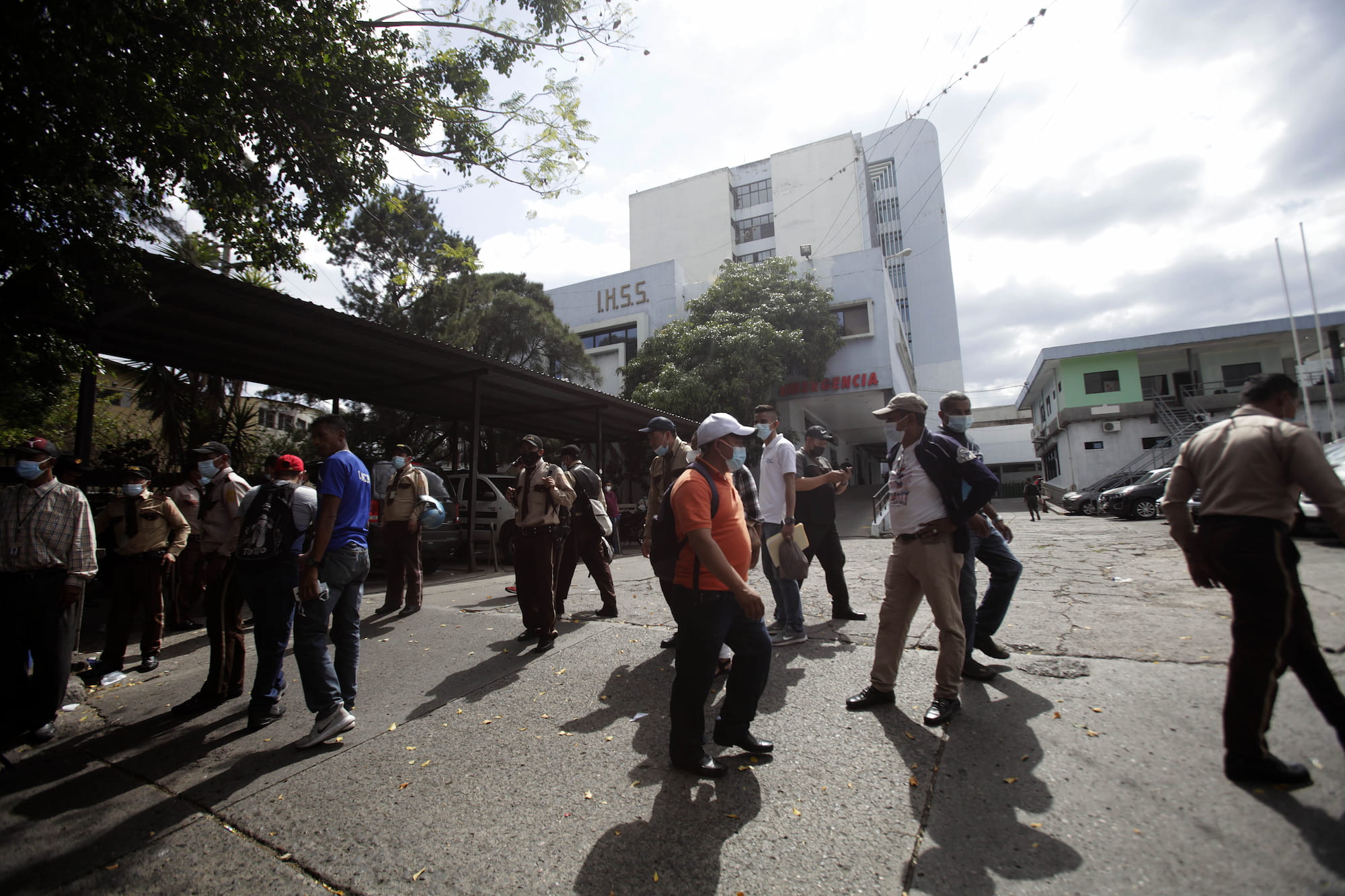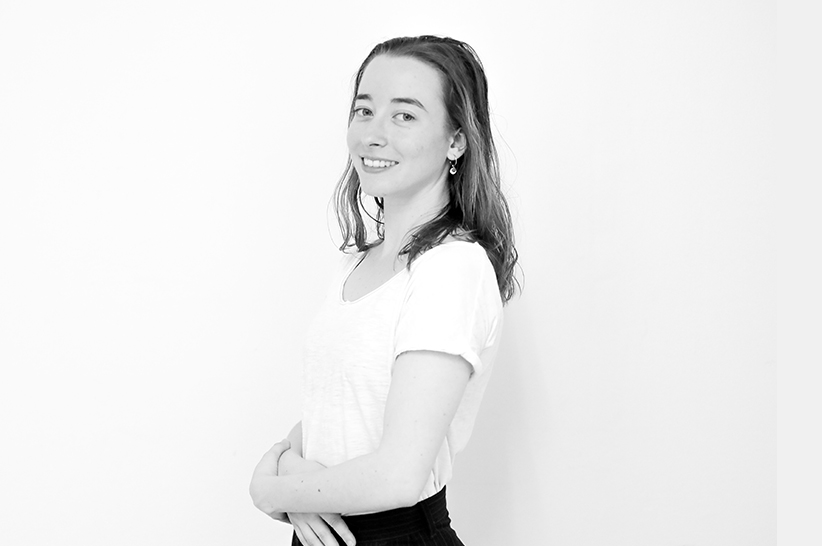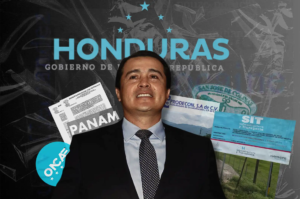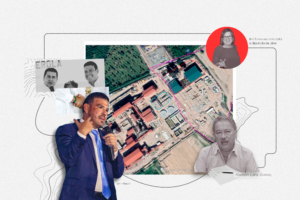Honorary consuls are limited-function, voluntary diplomatic actors whose role proceeds for an undetermined period of time. In Honduras today there are 62 honorary consuls, most being Honduran businessmen.This is the story of eight members of the Kafie family who hold honorary consul positions, even as some of them have been implicated in cases of corruption or human rights violations.
By: Célia Pousset and Jennifer Ávila
Editing: María Teresa Ronderos and Andrés Bermúdez Liévano
Translation: Ann Louise Deslandes
Part of the ICIJ special ‘Diplomacy in the shadows’
Neither career diplomats, nor ordinary citizens, honorary consuls are halfway there: they are voluntary office holders with limited functions. They often exist in countries or cities as honorary representatives in countries or cities not considered strategic enough by the host nation to have an actual ambassador or consul.
An analysis by Contracorriente and the Latin American Center for Investigative Journalism has found that there are 62 people in Honduras today representing other countries as honorary consuls. The study was part of a global investigation led by the International Consortium of Investigative Journalists (ICIJ) and ProPublica, which gathered 160 journalists from 46 countries to investigate people who would have used this figure around the world to commit abuses or receive preferential treatment.
In Honduras, one person currently occupying an honorary consul position was charged by the prosecution for fraud against the State and was granted permission to leave the country in the middle of his judicial process.
In June 2015, the Public Prosecutor’s Office (Ministerio Público – MP) of Honduras accused the businessman and honorary consul of Jordan, Shucri Kafie Larach, of the crime of ‘swindling to the detriment of the public administration’ in his capacity as president of the board of directors of Distribuidora Metropolitana S.A. (Dimesa), a company that, according to the MP, overvalued medical equipment that it sold to the Honduran Institute of Social Security (Instituto Hondureño de Seguridad Social – IHSS).
In the case file against Shucri Kafie and Juan Alberto Madrid, representatives of Dimesa, and seven other State officials, the MP stated that «the company Dimesa used the contract as a means to deceive the IHSS.» A technical report submitted by the IHSS Controller Office, carried out by biomedical engineer Walter Martínez, established that Dimesa’s contract was overpriced by 42.90% to 46.31%.
Shucri Kafie, who at that time was the president of the board of directors of Dimesa, faced the judicial process as a free man. In addition, he was permitted to leave the country in spite of having obligations to report to the court every fifteen days. Kafie was granted this because he needed medical treatment in the United States and Panama and also for another very important reason: he is the honorary consul of the Hashemite Kingdom of Jordan in Honduras.
Indeed, from the beginning of the legal process, Kafie was given special benefits. One month after the indictment, a court ruled in favor of Kafie’s defense and Dimesa’s Juan Alberto Madrid. They were permitted to pay bail at 10% of the amount they had defrauded – that is, 103 million lempiras – , and required to report to the court every fifteen days. At the same time, the court allowed Kafie to leave the country «whenever required».
The Public Prosecutor’s Office filed a constitutional challenge against these measures. They argued specifically that Kafie’s fine was insufficient and that Kafie was a flight risk due to being able to leave the country.
«In the case of Mr. Shucri Luis Kafie Larach,» the MP argued, «the Criminal Procedural Code does not say anything about the documentation that reports his state of health and that which refers to his obligations as consul.»
Referring to the flight risk, the Public Prosecutor’s Office said that «the means [Kafie] has to leave the country or remain hidden should be taken into account».
However, in an email communication with journalists, Shucri Kafie responded that «it is false» that he was permitted to leave the country due to his position as honorary consul.
«The honorary consul does not have any special or different treatment before Honduran law; the authorization [on leaving the country] to which he refers was strictly due to a health issue.»
He also wrote, «It is worth clarifying that this authorization was issued by the Court of First Instance [a lower court] and not by the Supreme Court of Justice as per your question».
Indeed, the case file notes that Kafie’s defense attorney requested on June 9, 2015, as soon as the arrest warrant was issued, that the international arrest warrant, the immigration alert and the preventive detention order be rendered null and void.
In a hearing of the defendant’s statement, Kafie’s private defense argued the vulnerability of the defendant due to his age and health, and also said he should receive special measures because «he is a consular officer».
The judge in that instance said that, although the 1973 Vienna Convention calls for courtesy treatment for honorary consuls, this did not exempt Kafie from being tried and, if necessary, being subject to a custodial measure.
The Vienna Convention, which governs consular affairs, provides that honorary consuls should benefit from «deferential» treatment in the event of criminal proceedings.
The international agreement is signed by 182 countries, including Honduras. It says:
«When criminal proceedings are instituted against an honorary consular officer, he shall be obliged to appear before the competent authorities. However, the proceedings shall be conducted with due deference to that official by reason of his or her official capacity and, except in the case of arrest or detention, in such a manner as to cause the least possible disturbance to the exercise of consular functions.»
A month later, the same judge argued that because he is a consul, Kafie would not be restricted from leaving the country. The businessman’s defense presented a document in which they state that, since June 15 of that year, the consul was not present at work due to health problems derived from the judicial process to which he was being submitted, leading the consulate to remain closed.
Despite the accusation against him, Shucri Kafie was not removed from his duties as honorary consul of Jordan, a position he has held without interruption since 1984. Kafie added in his response to our questionnaire that the Jordanian embassy «was informed of all the details throughout the process. We were part of a process where the presumption of innocence prevails». He also said that this is a case already judged by the Honduran justice system, in which the charges were dismissed due to a fallacious accusation motivated more by [politics] than by a legal logic that would support the accusation».
The embezzlement of the IHSS occurred between 2011 and 2014 and produced as a reaction a milestone in the anti-corruption fight in the country.
Thousands of citizens took to the streets to demand the resignation of then President Juan Orlando Hernández, who was just beginning his first term in office and whom the public was already pointing out that several checks from the embezzlement – which, according to the justice system, reached US$300 million – reached his 2013 electoral campaign accounts. The demonstrators also demanded an international commission of inquiry into corruption on the model of the CICIG in Guatemala. After several months of marches and protests, which became popularized as the movement of ‘the indignant ones’, in 2015 the Mission of Support against Corruption and Impunity in Honduras (La Misión de Apoyo contra la Corrupción y la Impunidad en Honduras – MACCIH) was installed, which the Hernández government itself dismantled in 2019.
The sum of these prosecuted cases revealed a large-scale corruption scheme between state officials and individuals from the business sector, in which, among others, was the name of Shucri Kafie Larach.
In the midst of appeals and constitutional challenges filed since 2015 by both Kafie’s private defense and the Prosecutor’s Office, which reached the Court of Appeals in criminal matters, finally on December 11, 2018 that Court made a decision. It resolved to declare the appeal filed by his lawyer Tito Hernández Salgado admissible and revoked the indictment.
Despite the fact that in January 2019 the Public Prosecutor’s Office filed a constitutional action in favor of the State of Honduras against the December 11, 2018 ruling; on January 24, 2019 the Criminal Court issued a definitive dismissal in favor of Shucri Kafie and granted him a definitive letter of release.
Shucri Kafie, the representative of the company that according to prosecutors overvalued medical equipment sold to the IHSS, was found not guilty. The Court found that there was no economic damage on the part of the company Dimesa and that «therefore the existence of the crime cannot be appreciated in relation to the public officials who intervened in the awarding of the public bidding and subsequent signing of a contract».
In addition, the Court established that the contracting of the IHSS had been approved by Congress. The Congress was then led by Juan Orlando Hernández, who would later become president for two terms and who, to date, is extradited and charged with drug trafficking to the United States, where he awaits trial.
Kafie never ceased to be honorary consul and, in addition, his company continued the contract with the State. According to Honduran public contracting data, Dimesa, in addition to having the contract in question with the IHSS, obtained twelve other contracts between 2013 and 2019 for a total value of 209,004,702.90 lempiras (US$8.2 million), according to the same data, to provide medical and hygienic materials to the Ministry of Health, the Ministry of Defense and the National Telecommunications Commission.
We consulted attorney Tito Hernández about his defense in the case and he responded that he could not give statements due to a non-disclosure agreement with his client, as well as the fact that the case is closed. «[It has been] ruled … by the Supreme Court of Justice, there is nothing more to say,» he said.
But Kafie added in his response to our inquiry that his innocence was proven in the trial: «it was not a purchase and sale of equipment as it was handled both by the prosecution and media,» he said.
Instead, «it was an INTEGRAL Contract that, being financed by the contractor, would provide new state-of-the-art equipment, a permanent and unlimited maintenance support during the entire term of the contract, the provision of spare parts that were necessary, specialized training, backup equipment among others,» he said.
Kafie added that the Prosecution made mistakes when presenting expert reports that calculated the alleged overvaluation of equipment, the reason for which he was charged.
«On the other hand, the defense did propose and present both national and international experts that showed not only the inaccuracy of the ‘reports’ of the accusation, but also the true financial reality of the contract based on all the services contained therein and thus the non-existence of any overvaluation,» he explained.
Honorary consuls in Honduras are accredited by the Honduran Foreign Ministry, which then sends a list to the National Congress, which finally approves each appointment. The same Congress can also cancel an appointment.
The deputy of the National Party, Tomás Zambrano, explained to these reporters that the National Congress approves the honorary consuls by simple majority. The candidates are requested by the Foreign Ministry based on their resumes.
Zambrano said he believes «the law of the foreign service should be reformed to establish a clearer procedure, requirements, attributions and faculties of the honorary consuls to exercise the position in Honduras.»
The deputy added that the National Congress has the power to immediately withdraw permission to exercise the position in case of accusations, but there is no procedure for this.
On the other hand, Josué Rodríguez, head of consular affairs of the Honduran Foreign Ministry, said that «we consider [honorary consuls] to be of impeccable morality.»
«We do not take the time to inquire if they had any dubious situation in the past,» he added.
«It is not up to us. The most we do is ask for criminal and police records. These are security requirements, but we don’t look too deeply into them either.»
Shucri Kafie maintained that he does not have any benefit for being honorary consul. «The biggest benefit is to look after the rights of Jordanians and Jordanian permanent resident foreigners in Honduras. It is also of great pleasure to contribute to the promotion of the development of economic, cultural and scientific relations between the State of Jordan and our country Honduras,» he explained.
Honorary consul as family heirloom
Kafie boasts his honorary consul position in public. «Honorary Consul Shucri Kafie is a diplomatic man, a charismatic leader, visionary entrepreneur, a doer businessman and philanthropist who guides the innovation of his companies,» says the businessman’s website.
Kafie is also known for his role at the head of companies such as the dairy sector’s Lacthosa, and Lufussa (Luz y Fuerza de San Lorenzo S.A. de CV), which generates and distributes electricity in Honduras and Central America, according to its website. Both companies, like Dimesa, are family businesses; in all three, Shucri Kafie shares interests with Luis Kafie Larach, his brother and also honorary consul of Finland in Honduras.
According to Honduran Ministry of Finance records, in 2019 alone Lufussa received 398,029,623.08 lempiras (US$16,012,465.06) from the State in payment as an energy supplier.
Among the 62 honorary consuls in Honduras representing other countries, there are eight members of the Kafie family who benefit from a consular card. They do not represent a single country or countries of the same continent, but are honorary consuls in Honduras from Scandinavia, the Caribbean, the Baltic, Central America or the Middle East.
This is the complete list: Simón Alberto Kafie Handal, Norway; José Leonel Giannini Kafie, Panama; Luis Kafie Larach, Finland; Henry David Kafie, Luxembourg; Eduardo Kafie Larach, Jamaica; Shucri Kafie Larach, Jordan; Jimmy Kafie Handal, Latvia; and Luis José Kafie, Lithuania.
Three consul brothers – Luis, Eduardo and Shucri Kafie Larach – are listed as partners in Dimesa, the company accused by the Public Prosecutor’s Office of having been involved in a case of embezzlement from the Honduran social security system, which was later acquitted by the Court. None of them lost their consul status as a result of the investigation.
In an email responding to these reporters, the honorary consul of Finland, Luis Kafie, wrote that, «as you know, this position is unpaid, non-profit, and I do not receive a salary or administer public funds from the Government of Finland. I perform my duties only on a voluntary basis in the absence of a diplomatic representation of the Government of Finland in Honduras. As Honorary Consul my objective is to look after the legitimate interests of Finnish citizens or entities in the Republic of Honduras, facilitating trade and investment between both nations and promoting friendship between our fellow citizens».
He added that in 2002, he was commemorated by the government of Finland with the title Commander of the Order of the Lions. Regarding the Dimesa case, he said that. as of 2019, the Honduran justice system «decreed the dismissal of each and every one of the ‘alleged’ charges against the company. Therefore, it conclusively proved [a] lack of fraudulent or irregular actions on the part of the company.»
Although it may be strange to see so many members of the same family occupying honorary consulates of different countries, it is actually a tradition. Josué Rodríguez of the Honduran Foreign Ministry notes: «Generally, the honorary consuls that exist are children of people who were honorary consuls in the past. They carry this vein in their DNA. They want to continue the legacy of their ancestors».
Honorary consuls are just that, honorary, and for that reason they do not receive any payment and are also not empowered to issue legal documents. «Being an honorary consul is literally an honor,» Rodríguez said. «The politicians of a country look for influential people – we say here in Honduras that they are ‘heavyweights’; people with a lot of money who have contacts to encourage foreign investment, facilitate exports or develop cultural projects.»
It is an understatement to say that the Kafie family, of Palestinian origin, embodies a model of business success. This family has been part of the country’s elite since the 1990s, when its members founded companies in the textile, agribusiness, real estate, product distribution and electrification sectors, among others.
The link between this family and the state is not uncommon. As a study by Equipo de Reflexión Investigación y Comunicación (ERIC) shows, the new Honduran elite built its empire through public contracts. In the study Elites, power networks and political regime in Honduras, researcher Marvin Barahona wrote «Most of the families that run the companies and emporiums created in recent decades are … heirs to a tradition forged in Honduras over several generations. The distinctive feature of these families is that they defined the potential of their businesses based on a close relationship with the State, from which they have obtained substantial benefits.»
«My father was Consul to Jordan from June 5, 1963 until his passing in 1983 and then the honor was assigned to me on October 14, 1984. It was a position inherited because of my father’s excellent track record as Jordanian consul in Honduras,» Shucri Kafie explained via mail, adding that, in the Kafie Larach family there are only four honorary consuls
Honorary consul as business opportunity
Honorary consuls can represent Honduras abroad or other countries in Honduras. In the second case, the consular affairs office of the Foreign Ministry is in charge of accrediting them, but he says it is not up to him to investigate them, since it is the embassies of the other countries that proceed to interview the candidates and choose who will represent their country.
«We do the accreditation procedures. The country that proposes him/her [to be consul] is in charge of reviewing the candidate,» emphasized the head of the consular office in Honduras.
The process is as follows: Chancery receives a verbal note from an embassy or consulate requesting the opening of the accreditation process to represent another country. The National Congress then has to issue an authorization.
One of the most recent honorary consuls to take office was appointed in September 2022, and he was a member of the Kafie family: the honorary consul of Lithuania, Luis José Kafie, nephew of Shucri Kafie Larach and son of Luis Kafie Larach. According to the Ministry of Foreign Affairs, he is in charge of six business conglomerates and feels indebted to his country.
The Kafie family is very careful about the beneficent image of its activities. Their websites emphasize philanthropy and social work – even environmental advocacy through renewable energy projects in Central America. The Shucri brothers, Luis and Eduardo Kafie created the Chito and Nena Kafie Social Fund in 2006, which worked to rebuild churches, provide food in schools and support sea turtle conservation in the Gulf of Fonseca in the Pacific Ocean. The Social Fund became a foundation in 2014.
Betting on community service is a characteristic of power groups in Honduras. The ERIC study puts it this way:
«Economic groups insert themselves into Honduran society through mechanisms and activities that go beyond the strictly economic, with two fundamental objectives. The first is to build a positive image in society, and the second is to create a «clientele» in the lower income segments, in order to appear to them as socially responsible and sensitive economic agents».
Luis José Kafie, the honorary consul of Lithuania, is also the corporate director of finance and development of Lufussa, the family company founded and managed by Luis Kafie, honorary consul of Finland and his father. The patriarch also founded Generadora del Istmo S.A. (Genisa).
In 2007, the Government of Panama approved Genisa for a water concession on the Tabasará River for the construction of a hydroelectric dam. This project, called Barro Blanco, received $25 million in financing from 3 international banks: the Central American Bank for Economic Integration (CABEI), the Dutch Development Finance Bank (FMO) and the German Investment and Development Company (DEG).
In February 2017, the magazine Endémico published a report on the conflict generated by the Barro Blanco project. In it, journalist Jonathan González details the main milestones that marked the history of the construction of the dam.
According to local media reports, the concession triggered a direct conflict with the indigenous population living in the Ngäbe-Buglé region, in western Panama.
In 2010, the Ngabes filed a legal action against the construction of the hydroelectric plant based
on the right to prior and informed consultation, which had not been not respected; but in 2014, while the construction was advancing, the Supreme Court of Panama ruled definitively in favor of the Genisa company. Then, the Ngabe people set up camp on the project site and there were confrontations. At a dialogue that was opened between the Government and the community in 2015, after provisionally suspending construction, the Ngabe’s technicians demonstrated that Barro Blanco had violated Panamanian norms and that the studies were deficient and incomplete. The Panamanian government lifted the construction suspension so that Genisa could finish the work, but fined the company more than $700,000 because of irregularities in the environmental impact mitigation plan.
In May 2016, communities residing within the project area were evicted as the testing phase of the dam began. More than 15 people were detained.
Despite this, active conflict continues. In March of this year, the Ngäbe-Buglé had, for the third time in five years, a hearing at the Inter-American Commission on Human Rights (IACHR).
The case has already proved embarrassing for at least one of the banks. In early 2021, the Dutch FMO announced that a panel of independent experts had established that the development bank had failed to follow its own standards and had approved the loan without robust information on the need for prior consultation and on the agreements signed by the company behind the project with representatives of local indigenous communities. As a result,
FMO modified its policy for evaluating projects considered high risk.
In addition to the Barro Blanco project, other links between the Kafie family and Panama can be found. José Leonel Giannini Kafie, currently Panama’s honorary consul in Honduras, is Luis Kafie’s partner in La Colonia Retail Investments incorporated in Panama in 2009. La Colonia is a supermarket with more than 40 stores in Honduras. The expansion of this retailer has been led by Giannini Kafie, who has held the position of president since 2016. Also in Panama, Giannini Kafie is a beneficial owner of the offshore company Terryhill International S.A. and a member of Corporación Internacional Ficohsa, also incorporated in Panama. In Honduras, Giannini Kafie is on the board of directors of Ficohsa and president of the Ficohsa Foundation for Children’s Education.
Although honorary consuls boast of being selfless in their service to others, many of them are also the ones who hold the largest fortunes in a country where, according to the National Institute of Statistics, 73% of the population is poor.
On Thursday, October 20, in San Pedro Sula, several of them gathered to attend the monthly meeting of the Sampedrano Consular Corps Association, as witnessed by Contracorriente. In the Emperador room of the Copantl Hotel, in semi-formal attire, with a glass of Spanish wine in hand and a leg of Serrano ham on the table, businessmen and high-ranking politicians conversed. The recently appointed Spanish ambassador to Honduras was present, giving a speech in which he emphasized the friendship between the two countries: «Hondurans have an open door in Spain,» he said. Applause followed and conversations struck up again, there was talk of investments, hydroelectric dams, Tegucigalpa elites, outsourcing business. Never – except when we asked – did the honorary consuls talk about their work.
«They are people with a lot of money and a lot of influence,» said the head of consular affairs at the Honduran Foreign Ministry. «That’s right. We checked.»

